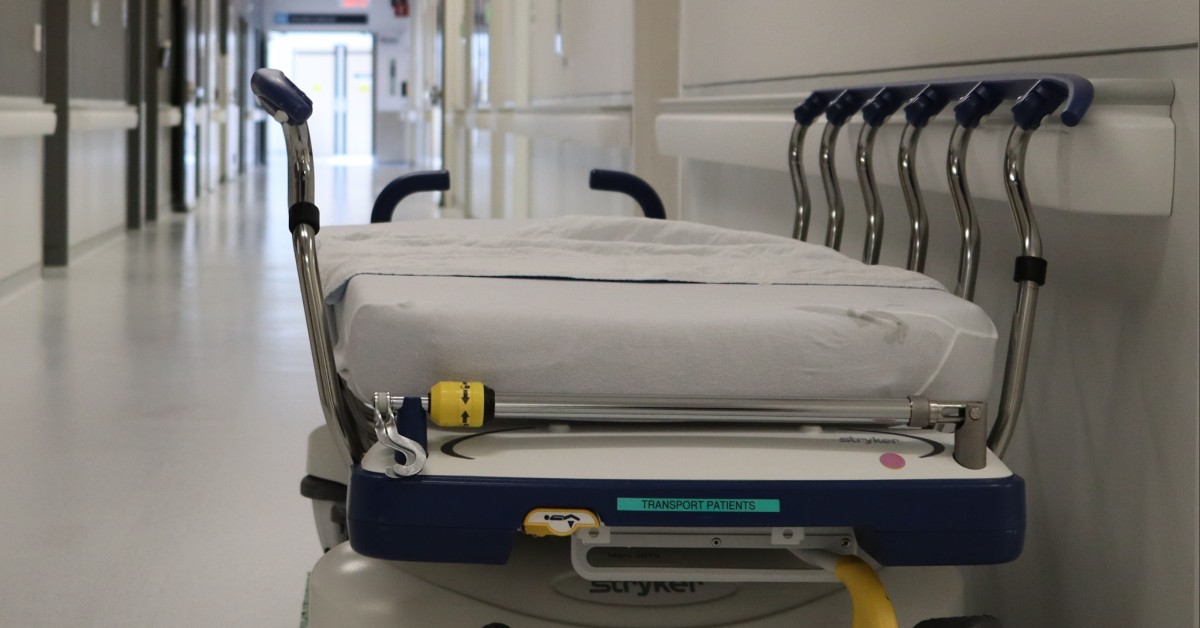
What Certifications Do Medical Social Workers Need?
Health care systems require social workers to assist individual patients [...]

Looking for a career in which you not only earn a good living but also make a difference in others’ lives? Nursing may be the profession for you.
Nursing opportunities aren’t confined to in-patient and out-patient care settings. Many career opportunities in nursing involve work beyond hospitals, clinics, and medical practice offices. From rehabilitation and oncology to research, patient advocacy, and health policy, there’s a nursing role to suit every skill set, passion, and personality.
Aspiring nurses can also expect comfortable wages—and considerable job security. According to the Bureau of Labor Statistics (BLS), registered nurses reported a median annual income of $73,300 in 2019. Nursing jobs requiring education past the undergraduate level pull in even higher wages. Nurse anesthetists, nurse midwives, and nurse practitioners—collectively known as advanced practice registered nurses—made a median annual wage of $115,800. Looking forward, the BLS projects that overall employment of this occupational group will grow 45 percent by 2029, resulting in over 100,000 new jobs.
Whether you’re considering returning to school for an advanced nursing degree or pursuing nursing education with limited healthcare experience, online programs in the field are available at all levels—and increasingly make earning a nursing degree more flexible, convenient, and accessible than ever. With this in mind, let’s look at the online programs offered in Michigan, who they’re designed for, and why enrolling as a distance learner at a nursing school that’s relatively close to home can offer some big advantages.
Our guide to online nursing programs in Michigan answers:
One significant benefit of online degree programs is that they allow students to enroll at schools in virtually any location. That said, enrolling in an online program close to home offers significant benefits, including saving on the cost of a degree with in-state tuition. Distance learners who live close to their school can access campus resources like libraries, career centers, and labs, and can meet with their instructors in-person. What they don’t have to deal with is the hassle and expense of traveling to and from campus for classes.
Name recognition of area schools among nearby employers is another perk. Your fellow alums likely populate the local medical profession, generating excellent word of mouth and a built-in career network for your degree.
Accredited and Michigan Board of Nursing-approved online programs offered by nursing schools in the Great Lakes State are available at the associate, bachelor’s, master’s, and doctoral level. So too are bridge programs. Use this list as a starting point to find the program to best fit your needs, interests, and career goals.
An associate’s degree in nursing is the minimum amount of schooling required to become a registered nurse (RN) and open the door to entry-level nursing positions across a range of healthcare settings. Associate-level nursing programs are typically broken into three categories: Associate Degree in Nursing (ADN), Associate of Science in Nursing (ASN), and Associate of Applied Science in Nursing (AAS).
The ADN path is the most common and widely known; oftentimes it is used as a generic term for all associate programs in the field. Full-time nursing students typically need two years to complete their degree, which focuses on the foundational competencies of nursing and requires hands-on clinical training. After earning their degree, graduates are eligible to sit for the NCLEX-RN exam.
Where to find online ADN programs in Michigan:
LPN-to-RN programs provide additional training to licensed practical nurses (LPNs) to become an RN. Depending on full- or part-time enrollment, these programs typically require one to two years of coursework as well as a clinical training requirement. Students must also pass the NCLEX-RN exam. LPN-to-RN programs are available through an on-campus format at several schools in Michigan. Online options are harder to come by.
BSN programs represent another path to RN licensure. They typically offer more in-depth and detailed coursework than ADN programs, and prepare students for a wider scope of practice.
Through a mix of academic classwork and clinical training, BSN students learn about anatomy, biology, and chemistry, as well as specific duties related to patient care, laboratory testing, forming treatment plans, and assisting with surgery. Some online programs allow students to specialize by tailoring their nursing courses to focus on such areas as acute care, community health, pediatrics, or neurology. Full-time students new to nursing can typically complete an online BSN in four years.
Where to find online BSN programs in Michigan:
Bridge programs are also available at the bachelor’s level to help nurses with diplomas, certificates, or ADNs complete a bachelor’s degree in a shorter amount of time than the typical four-year requirement. They include:
Where to find online RN-to-BSN programs in Michigan:
MSN programs serve practicing nurses seeking advanced roles in healthcare. While coursework varies from one program to the next, curricula typically build on students’ existing education by combining online learning focused on nursing theory and evidence-based practice concepts with practicum training. Nursing students in Michigan must satisfy a minimum of 500 clinical hours; some online MSN programs in the state may require a higher amount.
An MSN is the minimum requirement to become a nurse practitioner (NP), which students typically accomplish through a generalist track. Other students may seek out programs specialized to other types of advanced practice registered nurse (APRN) roles, such as certified registered nurse anesthetist (CRNA) and certified nurse-midwife (CNM).
Additionally, non-clinical specialized programs are available for students who plan to focus their careers outside of patient care, whether as research nurses, nurse educators, nurse informaticists, or nurse administrators. Most online MSN programs are open to candidates with an active RN license and a bachelor’s degree in nursing. They typically entail 15 to 24 months of full-time study and between three to four years of part-time coursework.
Where to find online MSN programs in Michigan:
Other schools offer programs for candidates who lack a BSN but hold nursing licensure. These programs allow students to spend less time and money on continuing their education compared to earning a BSN and MSN separately. They include:
Intended for RNs with an associate’s degree or diploma in nursing who seek to advance their practice through graduate study. Students often pursue a specialized track upon completion of foundational classes and can typically complete their RN-to-MSN in 18 to 36 months, depending on whether they enroll on a part- or full-time basis.
Where to find online RN-to-MSN programs in Michigan:
The two most common terminal nursing degrees are the Doctor of Nursing Practice (DNP) and the Doctor of Philosophy (Ph.D.).
A DNP is a clinical practice-based degree for nurses seeking the skills to pursue teaching evidence-based practice, clinical program development, quality of care improvement, and leadership in healthcare settings. DNP programs typically fall into one of three categories:
All contain coursework designed to prepare students in the eight core competencies outlined in The Essentials of Doctoral Education for Advanced Nursing Practice, a document DNP programs must follow to meet Commission on Collegiate Nursing Education (CCNE) accreditation standards.
Most online DNP programs require students to hold an MSN and nursing licensure. They typically consist of 33 to 43 credits and at least 500 clinical practice hours, which translates to one to two years of full-time coursework. On a part-time basis, a typical online program requires about two to three years to complete.
Where to find online DNP programs in Michigan:
Other DNP programs are available for students who lack an MSN but want to expand both their theoretical knowledge and competencies in the field.
For licensed RNs whose highest level of education is a bachelor’s in nursing. As part of their program, BSN-to-DNP students must complete MSN core courses, DNP core coursework, courses relevant to their specialization, and a minimum of 1,000 clinical practice hours. Full-time programs take three to four years to complete. Students enrolled on a part-time basis can typically complete their degree in as little as four years, but often have up to six or seven years to finish.
Where to find online BSN-to-DNP programs in Michigan:
Ph.D. programs emphasize research to advance the science and practice of nursing. Candidates seeking roles leading research teams, designing and implementing studies that address disease trajectories and care systems, or teach nursing at the postsecondary level are most likely to choose this path. Most programs require applicants to hold an MSN and RN licensure. They typically cover core doctoral courses, electives, and dissertation study.
Ph.D. programs typically don’t offer specializations; students forge their areas of expertise on their own through independent research. Some schools stress research and scientific inquiry dedicated to high-priority areas like education, nursing science, public health policy, and healthcare innovation. They also typically include guided research experiences, mentorship from faculty, and immersion experiences designed to encourage leadership and scholarship.
Where to find online Nursing Ph.D. programs in Michigan:
Oakland University (Rochester Hills, MI)
Like the DNP, there are alternative paths students can take to earn a Ph.D. in Nursing. These programs prepare for the transition into the doctoral experience, and include:
Questions or feedback? Email editor@noodle.com

Health care systems require social workers to assist individual patients [...]

Education requirements for nurses in the U.S. are becoming more [...]

The Doctor of Nursing Practice (DNP) is a terminal practice-level [...]

The 8 Keys to Success,created by the DOE, VA, and [...]

Healthcare administrators often join professional organizations such as the American [...]
Categorized as: Advanced Practice Nursing, Nurse Practitioner, Nursing & Healthcare